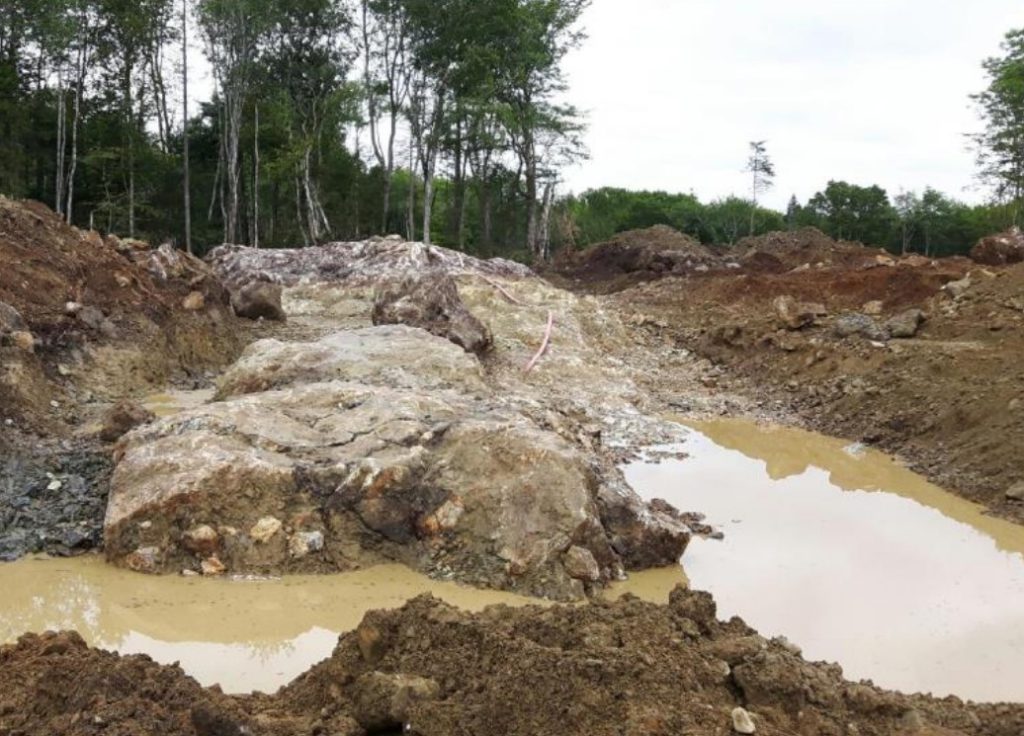Champlain’s first resource for Brazil Lake pegmatite in Nova Scotia


Champlain Mineral Ventures, a private exploration company based in Nova Scotia, has released an initial resource estimate for the 100% owned Brazil Lake lithium-bearing pegmatite deposit. The project is located approximately 25 km north-northeast of the town of Yarmouth, and about 300 km southwest of Halifax.
The MRE tabled 555,300 tonnes of measured and indicated resources grading 1.30% lithium oxide (Li2O) and 381,000 tonnes of inferred resources grading 1.48% Li2O. These are both pit and underground constrained.
All mineral resources at Brazil Lake occur within four contiguous exploration licenses consisting of 84 mineral claims (1,408 hectares). Champlain has operated the project since 1998, and has completed numerous exploration programs, including five core drilling programs between 2022 and 2020 that formed the basis of the current MRE.
The Brazil Lake deposit is currently defined by two lithium-bearing granitic pegmatite dikes, where diamond drilling has outlined a pegmatite deposit that remains open in both strike and dip dimensions at present.
Prospecting on the Brazil Lake claims has also resulted in the discovery of spodumene-bearing pegmatite boulders and outcrops, in addition to those directly associated with the current resources; these new areas have the potential to expand the mineralization and will be targets for future exploration. A drone magnetometry (UAV) survey will be carried out this year on Champlain's claims as part of a regional exploration program to identify prospective areas for new pegmatite discoveries.
Core logging results and analytical data for mineralized intersections within the resource area documented the presence of other metals of potential interest as well, such as beryllium, rubidium, niobium, tin and tantalum. Further technical investigations and mineral processing studies will be required to include some of these elements in a future estimate.
For downstream processing, Champlain will use the purification technology and alternative green extraction process developed by local partner Sixth Wave Innovations.
Details on the lithium processing technology can be found here.
Comments